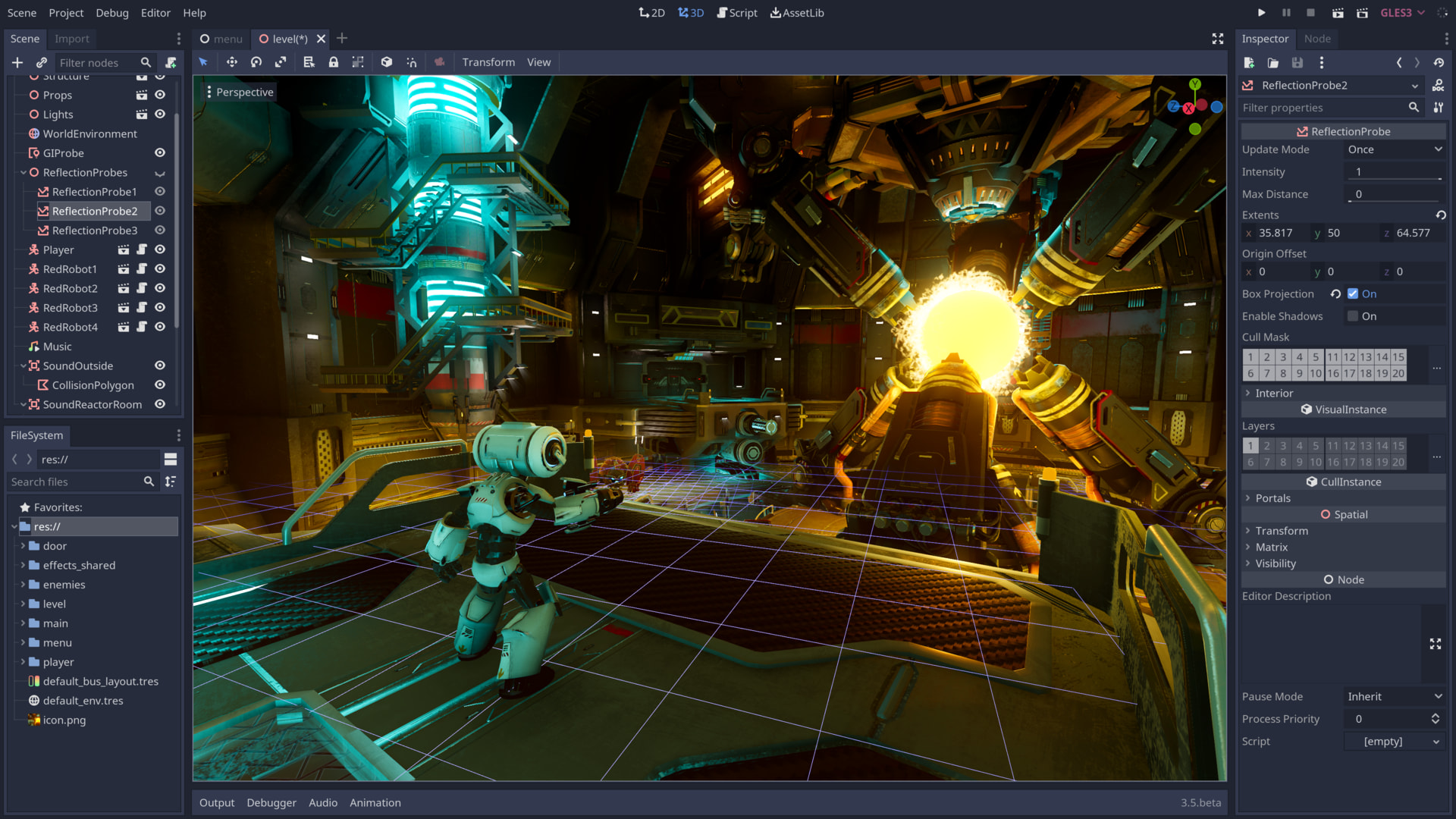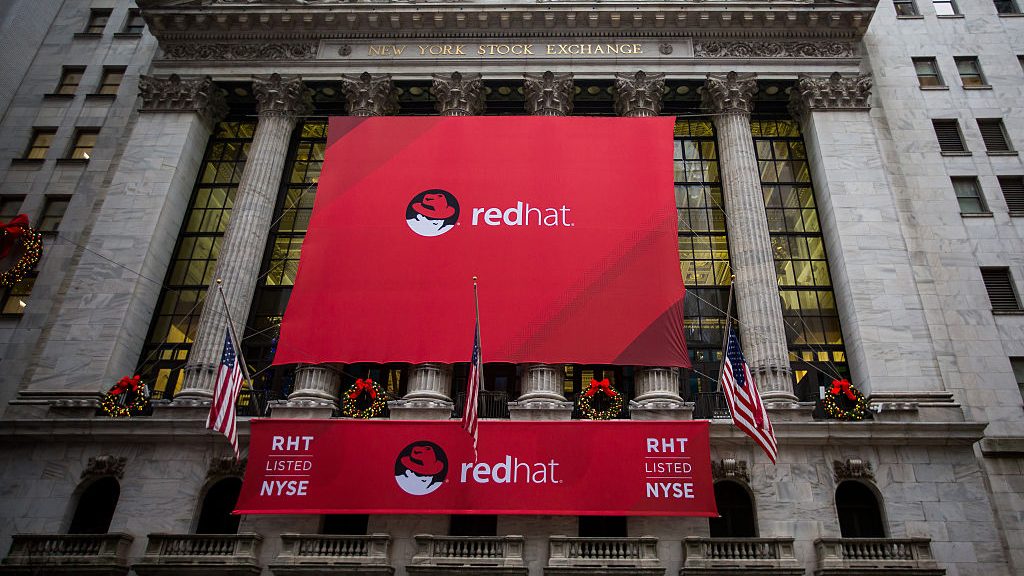A new company from the creators of the Godot game engine is setting out to grab a piece of the $200 billion global video game market — and to do so, it’s taking a cue from commercial open source software giant Red Hat.
Godot, for the uninitiated, is a cross-platform game engine first released under an open source license back in 2014, though its initial development pre-dates that by several years. Today, Godot claims some 1,500 contributors, and is considered one of the world’s top open source projects by various metrics. Godot has been used in high-profile games such as the Sonic Colors: Ultimate remaster, published by Sega last year as the first major mainstream game powered by Godot. But Tesla, too, has apparently used Godot to power some of the more graphically intensive animations in its mobile app.
Among Godot’s founding creators is Juan Linietsky, who has served as head of development for the Godot project for the past 13 years, and who will now serve as CEO of W4 Games, a new venture that’s setting out to take Godot to the next level.
W4 quietly exited stealth last week, but today the Ireland-headquartered company has divulged more details about its goals to grow Godot and make it accessible for a wider array of commercial use cases. On top of that, the company told TechCrunch that it has raised $8.5 million in seed funding to make its mission a reality, with backers including OSS Capital, Lux Capital, Sisu Game Ventures and — somewhat notably — Bob Young, the co-founder and former CEO of Red Hat, an enterprise-focused open source company that IBM went on to acquire for $34 billion in 2019.
But first… what is a game engine, exactly?
Game plan

In simple terms, a game engine serves up the basic building blocks required for developers to create games, and may include anything from renderers for 2D or 3D graphics to scripting and memory management. It’s basically a software framework that developers can use and reuse without having to redesign the wheel with each new game they create.
“This allows developers to utilize pre-made functionality that is common to most games when creating their own, and only create the parts that make the game unique,” Linietsky explained to TechCrunch.
While many companies, particularly larger game studios, develop their own engines in-house, as games and the associated development processes have become more complex, third-party general purpose game engines have grown in popularity. This includes long-established incumbents such as Unity, developed by tech powerhouse Unity Software, which is currently in the process of merging with IronSource.
One reason why a studio might use a third-party game engine is to cut down on in-house development costs, but a trade-off here is that it then has to work with a gargantuan code-base, which it has limited control over. And that is why Godot has gained some fans through the years — as an open source project, it gives developers an oven-baked game engine that they can tweak and fine-tune to their own needs, with improvements pushed back to the development community for everyone to benefit from.
“The result is reduced development costs and more freedom to innovate,” Linietsky said. “Godot brings to the game industry the same benefits that enterprise software has been enjoying from it [open source software] for decades.”
The open source factor

Anyone who has even remotely paid attention to the technology sphere over the past decade or so will have noticed that open source is now big business. The likes of Elastic and Cockroach Labs have built billion-dollar businesses off the back of open source projects, while Aiven recently hit double-unicorn status for a business that helps enterprises make the most of open source technologies in cloud environments.
But Red Hat, arguably, remains one of the biggest success stories from the open source world, selling enterprises premium support and services for some of the world’s biggest community-driven projects, from Linux to Kubernetes.
“Companies like Red Hat have proven that with the right commercial offerings on top, the appeal of using open source in enterprise environments is enormous,” Linietsky said. “W4 intends to do this very same thing for the game industry.”
It’s an interesting parallel, for sure, and one that seems pretty obvious when presented with such a comparison. Linux’s open source credentials were what led it to become the leading operating system for web servers, while Android’s mobile market share dominance can substantively be attributed to its Linux kernel base. Elsewhere, other open source projects such as Kubernetes are powering enterprise adoption of microservices and container technologies.
In truth, Godot is nowhere near having the kind of impact in gaming that Linux has had in the enterprise, but it’s still early days — and this is exactly where W4 could make a difference.
“We expect Godot to take the same route in the game industry as other open source software has taken in the enterprise, which is to slowly become the de facto standard,” Linietsky continued. “It is very difficult for companies that create proprietary software to compete with the massive talent pool that popular open source projects have, and unappealing for software users to concede the freedom to use software as they please to a third-party entity.”
On top of that, having one of Red Hat’s original founders on board as an investor can only be construed as a major coup for a startup that is just eight months old.
“Bob is an incredible human being who helped create a whole new type of business where nobody expected it was possible,” Linietsky continued. “He identified the opportunity for Godot and W4 as very similar to Linux and Red Hat two decades ago, and has been very kind to share his wisdom with us, as well as becoming an investor in our company.”
Support and services

W4’s core target market will be broad — it’s gunning for independent developers and small studios, as well as medium and large gaming companies. The problem that it’s looking to solve, ultimately, is that while Godot is popular with hobbyists and indie developers, companies are hesitant to use the engine on commercial projects due to its inherent limitations — currently, there is no easy way to garner technical support, discuss the product’s development roadmap, or access any other kind of value-added service.
But perhaps more importantly, while Godot is touted as a cross-platform game engine spanning the web, mobile and desktop, it has hitherto lacked direct support for games consoles. The reason for this is that as an open source project served under a permissive MIT license, Godot can’t provide support for consoles because it wouldn’t be allowed to publish the code required to interact with the proprietary hardware — game studios that develop for consoles have to sign strict non-disclosure agreements. Plus, console makers will only work with registered legal entities, which Godot is not.
Put simply, Godot can’t be a community-driven open source project and support consoles at the same time. But there are ways around this, which is why W4 hopes to make money by offering a porting service to help developers convert their existing games into a console-compatible format.
“W4 will offer console ports to developers under very accessible terms,” Linietsky said. “Independent developers won’t need to pay upfront to publish, while for larger companies there will be commercial packages that include support.”
Elsewhere, W4 is developing a range of products and services which it’s currently keeping under wraps, with Linietsky noting that they will most likely be announced at Game Developers Conference (GDC) in San Francisco next March.
“The aim of W4 is to help developers overcome any problem developers may stumble upon while trying to use Godot commercially,” Linietsky added.
It’s worth noting that there are a handful of commercial companies out there already, such as Lone Wolf Technology and Pineapple Works, that help developers get the most out of Godot — including console porting. But Linietsky was keen to highlight one core difference between W4 and these incumbents: its expertise.
“The main distinctive feature of W4 is that it has been created by the Godot project leadership, which are the individuals with the most understanding and insight about Godot and its community,” he said.
Distributed
Of Godot’s 1,500 or so contributors, 10 are more-or-less permanent hires, paid via community donations. Similarly, W4’s current team of 12 largely consists of long-standing Godot contributors, spread across eight different countries in the Americas and Europe. This is much like how other companies built on an open source foundation started out, including Red Hat and WordPress.com’s parent Automattic, which was one of the most well-known “distributed” companies out there, long before the remote-work revolution came along in 2020.
Indeed, distributed work is one of the core defining characteristics of open source software development. By way of example, Linietsky is based in Spain, while co-founder and COO Rémi Verschelde works from Denmark. The other two founders, CTO Fabio Alessandrelli and CMO Nicola Farronato, operate from different locations in Italy.
But every legal entity needs to choose somewhere as its corporate home. And similar to many tech companies, W4 elected Dublin, Ireland as its official HQ — though this presence is really just on paper, only.
“We are based in Ireland because two of the co-founders have previously established there, have relatives and are very familiar with the Irish ecosystem,” Linietsky said.






























Comment